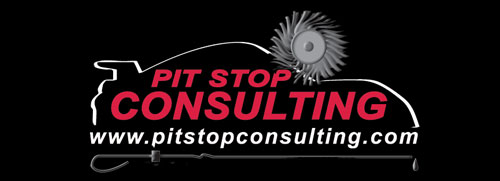While sitting in the airport writing this article, I have observed no less than 100 people walk by a dime someone has dropped on the floor without picking it up. I was taught that a penny saved is a penny earned. To this day, I pick up pennies when I see them on the ground. It probably comes as no surprise that I watch my pennies when buying supplies for the fast lube. Simply put, saving a quarter per oil filter means adding $3,000 to the bottom line on a 40 car per day store every year. Add to that, or should I say subtract from that, a quarter savings on a gallon of oil and you pick up another $3,150 per year. Every penny you save on an oil change is multiplied by at least 12,000 cars for a 40 car per day store. This figure increases if you use more than one penny per vehicle. Twenty percent of your customers will buy an air filter; a quarter savings per air filter will net you an additional $600.
Let us say you gross $500,000 per year from 12,000 cars and that your net is 10% or $50,000. You could increase your net by 1.35% by following the three examples above. You will have saved enough to equal a whole yearʼs worth of work in just seven years. That is a full yearʼs profit just by watching your pennies and buying more carefully. If you have seven stores, you realize this amount is equal to one storeʼs entire annual profit. Judging purely by profit, you have added another store to your chain without the extra manager, techs or administrative work required, not to mention the land, building taxes, and so on.
Why stop at filters and oil? What about uniforms, waste oil pickup, antifreeze, or washer fluid? You control what is on the list.
Cheaper is not always better. I am not advocating the use of inferior products for your customers. I am only asking you to utilize the options you are given.
How do you go about saving this money? Many times your current vendor will match the prices of other vendor to keep your business. It is good for them as well as for you. You know as well as your vendor does that it is cheaper to keep a customer than to find a new one. You both benefit in this situation. You save a few dollars and your vendor keeps a good customer.
It is important that you take advantage of all the programs offered to you through your vendor. Oftentimes you are required to use a certain brand of oil or filters because of up front money you have taken from an oil company. In this case, make sure the rebates and credits you earn for every filter or gallon of oil your shop uses is realized by your lube.
You can also save a significant amount on your order if you pay with a credit card when buying from an independent supplier. If timed correctly, you can do this and still have a 30-day term through your credit card company while not incurring any finance charges. Depending on the credit card, you could earn frequent flier miles for trips to conventions!
Currently, there are more companies available to buy your fast lube supplies and products than at any other time I can remember. They all actively solicit your business each month in every industry magazine.
When was the last time you got a catalog and really compared the prices of your supplier with another? Many vendors sell the exact same parts and products. Why continue buying from vendor ʻAʼ when the prices are lower with vendor ʻBʼ? I will be the first to speak of the importance of relationships with vendors, accountability, and service. A good relationship with the supplier you call on the phone every week is important, but so is the bottom line with which you struggle every day.
Do yourself a favor and call a supplier you see in an industry magazine and compare prices. I have found that it is just as easy to save a penny or two as it is to make the extra penny or two.
I think you will start to enjoy the benefits of ʻbuying smartʼ when you look at your monthly numbers.




